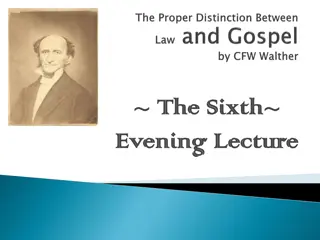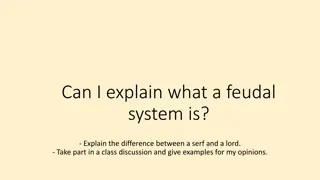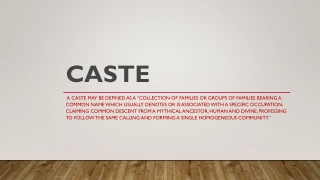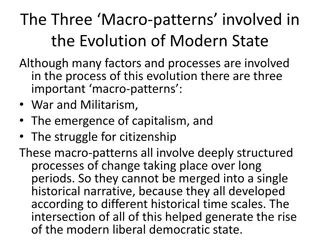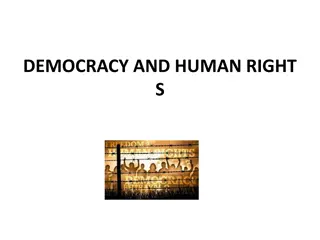Aristotle's Justification of Hierarchy and Republican Aspects of Citizenship
Aristotle's concept of citizenship involves a hierarchical structure where ruling and being ruled in turn is essential. He justifies this hierarchy by emphasizing the advantageous nature of ruling and being ruled. However, his views on citizenship in Greek city-states were limited to adult males, highlighting principles of hierarchy and exclusion. Additionally, Aristotle emphasizes the importance of virtues and education in citizenship, advocating for the rule of law over the rule of men.
Download Presentation

Please find below an Image/Link to download the presentation.
The content on the website is provided AS IS for your information and personal use only. It may not be sold, licensed, or shared on other websites without obtaining consent from the author. Download presentation by click this link. If you encounter any issues during the download, it is possible that the publisher has removed the file from their server.
E N D
Presentation Transcript
Aristotles Justification of Hierarchy Aristotelian description of citizenship as ruling and being ruled in turn or as by sharing in decision and office seems to be in contrast to the Platonic Ideal in which ruling is a prerogative of a distinct class. Aristotle steps down from this ideal in order to accommodate the practice of sharing power among active partners as equal citizens. But the universe of citizenship in a Greek Polis was restricted to adult males born to members of the same community. So the core principles of citizenship in Greek city states were hierarchy and exclusion.
Aristotles Justification of Hierarchy (contd.) Justification: For Aristotle the idea of ruling and being ruled in turn must apply to things advantageous . Immediately from birth certain things diverge, some toward being ruled, others toward ruling . Soul rules the body, intellect rules over appetite It is advantageous for both the body and the appetite to be ruled by the soul and the intellect. This explains the hierarchical relations in society-
Aristotles Justification of Hierarchy(Contd.) Thus the axiom of ruling and being ruled in turn would only apply among equals. Master-slave, male-female, by nature a relation of superior to inferior and ruler to ruled. In building these relationships of inequality Aristotle is making a larger case for separating the household (oikos) from the polis By separating the work of the master from that of the slave and man from woman, Aristotle s polis builds up a public sphere that belongs only to adult males
Aristotles Justification of Hierarchy(Contd.) In this arbitrary distinction perhaps there is both a bit of conventionalism (justifying the prevalent convention of slave-owning) and also a perceived need within the Aristotelian system, to free males from everyday chores and thereby allow them more time to participate as active citizens.
Republican Aspects of Citizenship Aristotle requires citizens to inculcate certain virtues that will prove crucial in the pursuit of the good life. Without proper laws and education, people are liable to degenerate in various ways Citizens need to have the right habits instilled in them, both by a regime of education and by appropriate laws. Aristotle further makes a stronger case for the rule of law over the rule of men.
Republican Aspects: Rule of Law(Contd.) Law, according to Aristotle, is intellect without appetite. Aristotle claims, just as man is the best of animals when completed, when separated from law and adjudication he is the worst of all . Laws shape citizens characters, and education fosters a collective spirit. Aristotle favours a state-sponsored education programme which should be common to all. Much of the contemporary revival of civic republicanism is inspired by Aristotle.














